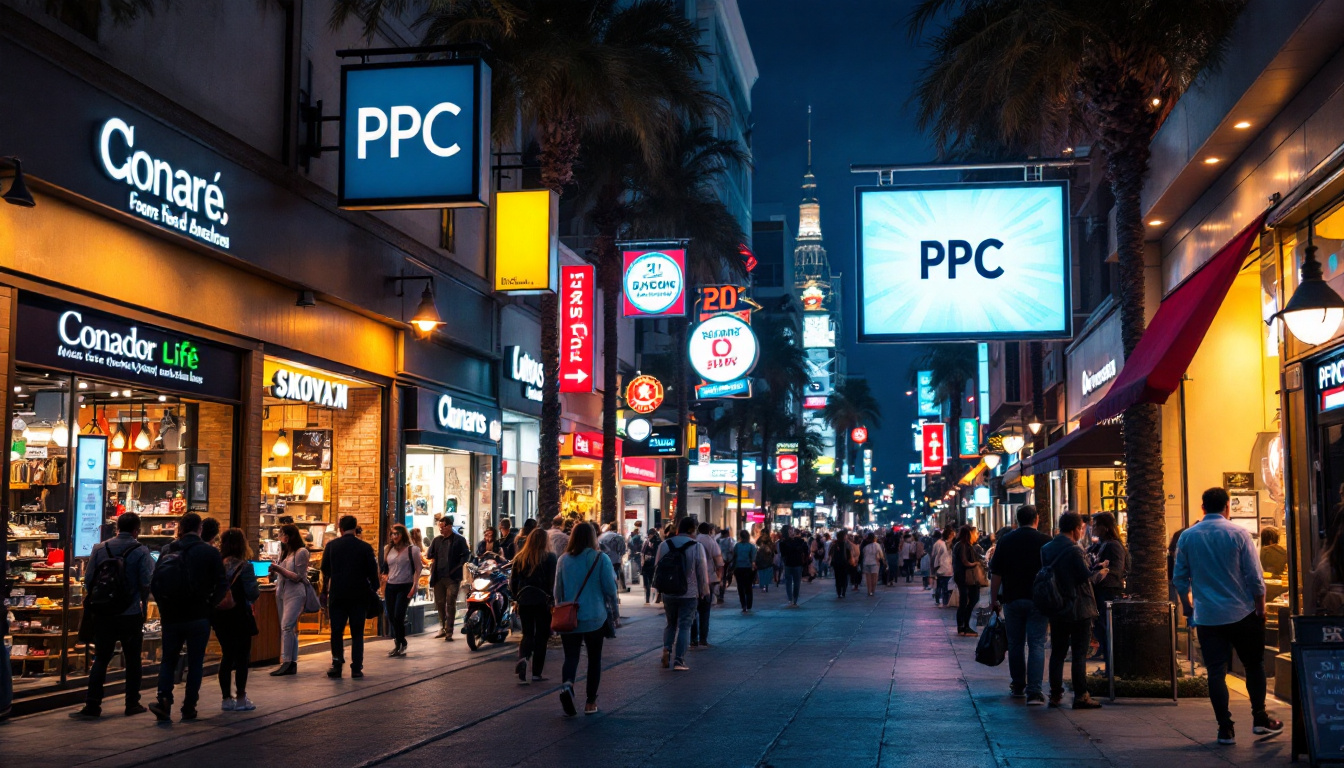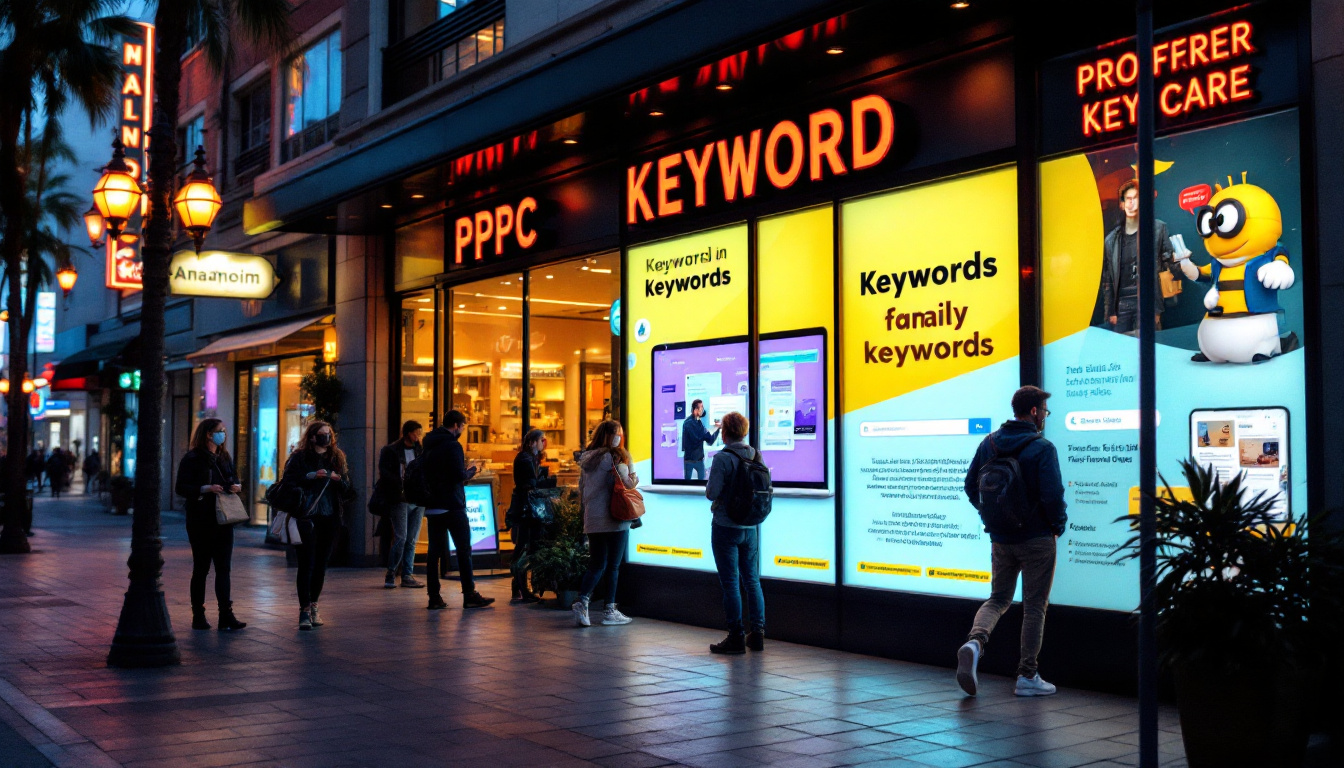10 Things Every Anaheim, CA Business Should Know About PPC

Pay-Per-Click (PPC) advertising has become a cornerstone of digital marketing, especially for businesses in vibrant areas like Anaheim, California. Understanding PPC can significantly improve your online presence and increase profitability. This article outlines key insights that every business in Anaheim should consider when diving into the world of PPC.
Why PPC is essential for Anaheim, CA businesses
In today's fast-paced digital landscape, PPC advertising provides immediate visibility for businesses looking to reach potential customers quickly. Unlike traditional advertising methods, PPC allows businesses in Anaheim to appear prominently in search results and on social platforms when users are actively looking for products or services.

For local businesses in Anaheim, leveraging a PPC campaign can be an excellent way to target a specific demographic. This means crafting ads that speak directly to the community, leveraging local culture, events, and trends that resonate with the Anaheim audience. By incorporating local landmarks, seasonal events, and community-centric messaging, businesses can create a sense of familiarity and trust that encourages potential customers to engage with their brand.
Immediate Results
The beauty of PPC lies in its speed. Once your campaign goes live, your ads can start appearing immediately. This instant gratification is fundamental for businesses aiming to capture the attention of customers right when they are searching. Unlike organic SEO strategies, which take time to produce results, PPC offers a quicker return on investment. Additionally, businesses can monitor performance metrics in real time, allowing them to make adjustments on the fly to optimize their campaigns for better results.
Targeted Advertising
PPC allows for refined targeting options. Businesses can tailor their ads based on geographic location, demographics, company size, interests, and much more. For Anaheim businesses, this means reaching local consumers effectively by setting location-specific parameters. By utilizing tools like geo-targeting and remarketing, businesses can ensure that their ads are shown to the right people at the right time, maximizing the likelihood of conversion. This level of precision not only enhances the effectiveness of the advertising spend but also helps in building a loyal customer base that feels personally connected to the brand.
Moreover, the ability to analyze and segment audiences further enhances the effectiveness of PPC campaigns. By understanding which demographics are most responsive to certain ads, businesses can refine their messaging and offers to better align with customer preferences. This data-driven approach not only improves engagement rates but also allows for the allocation of marketing budgets toward the most effective strategies, ensuring that every dollar spent contributes to the overall success of the business.
Common misconceptions about PPC
Despite the growing prevalence of PPC, numerous misconceptions can lead businesses to underutilize or mismanage their campaigns. Understanding these myths can empower Anaheim business owners to make informed decisions.
PPC is Only for Big Budgets
A common misconception is that only large corporations can benefit from PPC due to budget constraints. In reality, PPC is scalable, and businesses of all sizes can participate. Creating a well-planned budget based on the specific goals of the campaign can deliver substantial results, regardless of size. Small businesses can start with modest budgets and gradually increase their spending as they see positive returns. Additionally, platforms like Google Ads offer various bidding strategies that allow advertisers to control costs effectively, ensuring that even those with limited resources can compete in the digital marketplace.
Moreover, local targeting options enable smaller businesses to focus their efforts on specific geographic areas, maximizing their reach without overspending. By honing in on the right audience, even a small budget can yield impressive results, driving traffic and conversions that might not have been possible through traditional advertising methods. This targeted approach not only enhances visibility but also fosters a more engaged customer base, ultimately leading to sustainable growth.
PPC Delivers Instant Success
While PPC can bring immediate visibility, it does not guarantee instant success. It often takes time to optimize campaigns, analyze data, and adjust strategies. Businesses must be patient and willing to make ongoing improvements. Understanding the advertising landscape and effective management can help businesses leverage PPC more effectively over time. Success in PPC is a continuous process that involves monitoring key performance indicators (KPIs) such as click-through rates, conversion rates, and return on ad spend. These metrics provide valuable insights into what is working and what needs adjustment.
Furthermore, A/B testing different ad copies, landing pages, and targeting options can reveal which combinations resonate best with the audience. This iterative process allows businesses to refine their approach, ensuring that every dollar spent on PPC is maximized for effectiveness. By embracing a mindset of experimentation and learning, businesses can cultivate a more robust PPC strategy that evolves with changing market dynamics and consumer behaviors, ultimately leading to sustained success in their advertising efforts.
How to allocate your PPC budget effectively
Creating a PPC budget might seem daunting, but it’s essential for maximizing your advertising resources. Here, we will outline strategies to effectively allocate your budget.
Define Your Goals
Start by clearly outlining what you want to achieve with your PPC campaigns. Are you focusing on brand awareness, lead generation, or direct sales? Defining specific goals will help you determine how much to allocate to different aspects of your campaign. For instance, if your primary goal is lead generation, you might want to invest more heavily in campaigns that target potential customers at the top of the funnel, using engaging ad copy and compelling calls to action that encourage clicks and conversions.
Research and Analyze
Consider conducting thorough keyword research to prioritize high-value keywords that are relevant to your business. The better you understand your competition and the marketplace, the more wisely you can allocate your budget. Tools like Google Keyword Planner or SEMrush can provide insights into search volume and competition levels, helping you to identify which keywords are worth the investment. Additionally, analyzing past campaign performance can reveal trends and patterns that inform future budget allocations, allowing you to focus on what has proven successful while adjusting or eliminating underperforming strategies.
Moreover, it's crucial to keep an eye on seasonal trends and market fluctuations that may impact your PPC performance. For example, certain industries experience peak seasons where consumer interest surges, such as retail during the holidays or travel in summer. By aligning your budget with these trends, you can capitalize on increased demand and optimize your ad spend for maximum impact. Regularly reviewing and adjusting your budget based on these insights not only enhances your campaign's effectiveness but also ensures that your advertising dollars are being put to the best possible use.
The role of keywords in PPC success
Keywords are the foundation of PPC success. Choosing the right keywords determines visibility and relevance in the competitive landscape of Anaheim's businesses. A well-optimized keyword strategy not only improves ad placement but also ensures that your message reaches the right audience at the right time, ultimately driving traffic and increasing sales.

Keyword Research Tools
Utilize keyword research tools and resources to find terms that align with your customers' search behaviors. Tools like Google Ads Keyword Planner, Ubersuggest, and SEMrush can provide insights into search volume and competition levels. Additionally, these tools often offer suggestions for related keywords and phrases, allowing you to expand your reach and discover untapped opportunities that can enhance your campaigns. By analyzing the data provided by these tools, you can refine your keyword list and focus on terms that not only resonate with your target audience but also align with your business goals.
Long-Tail Keywords
Incorporating long-tail keywords, phrases that are more specific and usually longer in word count, can significantly enhance your PPC campaigns. These keywords tend to have lower competition and may lead to higher conversion rates, as they typically attract more qualified leads seeking specific information or solutions. For instance, instead of targeting a broad keyword like "shoes," a long-tail keyword such as "comfortable running shoes for flat feet" can help you connect with customers who are further along in the buying process. This targeted approach not only improves your ad's relevance but also enhances the overall user experience, as potential customers find exactly what they are looking for.
Moreover, long-tail keywords can also help you to create more tailored ad copy and landing pages that speak directly to the needs and desires of your audience. By focusing on these specific phrases, you can craft compelling messages that address pain points and offer solutions, making it more likely that users will engage with your ads and convert. This strategy not only boosts your click-through rates but also contributes to a more efficient use of your advertising budget, as you are less likely to waste resources on clicks that do not convert.
How PPC fits into your overall marketing strategy
PPC advertising should not exist in isolation. To maximize effectiveness, it must complement your overall marketing strategy. Understanding how PPC interplays with other marketing efforts is crucial for a holistic approach.
Integration with Social Media and Content Marketing
Consider how your PPC campaigns can integrate with your social media and content marketing strategies. Promoting blog posts through PPC can help drive traffic, while social media campaigns can augment PPC efforts by maintaining presence and engagement.
Continuous Measurement and Adjustment
Finally, the most important aspect of integrating PPC into your overall marketing strategy is continuous measurement and adjustment. Use analytics to assess performance, monitor conversion rates, and refine your strategies based on data analysis. This feedback loop helps ensure that your PPC efforts remain aligned with your broader marketing goals.
In conclusion, by understanding the importance of PPC, dispelling common misconceptions, allocating budgets effectively, and recognizing the role of keywords and overall marketing strategies, businesses in Anaheim can harness the power of pay-per-click advertising to drive growth and success.

As a Google Ads expert, I bring proven expertise in optimizing advertising campaigns to maximize ROI.
I specialize in sharing advanced strategies and targeted tips to refine Google Ads campaign management.
Committed to staying ahead of the latest trends and algorithms, I ensure that my clients receive cutting-edge solutions.
My passion for digital marketing and my ability to interpret data for strategic insights enable me to offer high-level consulting that aims to exceed expectations.





























